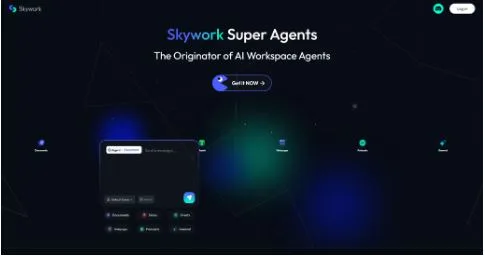Unipesa and MobiPay Botswana Partner to Boost Cross-Border Payments and Financial Inclusion
Africa’s digital payments industry continues to expand, with new alliances redefining how people and businesses move money across borders. The latest milestone comes from Botswana, where Unipesa, MobiPay Botswana, and Velex Investments have joined forces to enhance cross-border payment systems and accelerate financial inclusion.
As discussed in the original announcement on Reuters, the partnership brings together Unipesa’s pan-African fintech infrastructure and MobiPay’s established local networks to create faster, cheaper, and more reliable digital payment solutions.
Building Bridges Across Borders
Southern Africa remains one of the most expensive regions in the world for international money transfers. Limited interoperability, high remittance fees, and outdated systems continue to prevent affordable access to financial services for individuals and small businesses.
The new alliance aims to change that. By connecting Unipesa’s technology platform with MobiPay Botswana’s on-the-ground operations, the companies plan to reduce transaction costs, speed up transfers, and open digital channels for mobile money users and merchants.
“This partnership is about more than just payments,” said Pavel Laptev, Chief Product Officer of Unipesa. “It’s about empowering communities with real financial access and creating a bridge for individuals and businesses to move money securely and efficiently across borders.”
A Step Toward Inclusive Finance
For MobiPay Botswana, the collaboration represents a natural evolution of its mission to expand accessible payment options for local communities. “Botswana is ready for the next leap in digital payments,” said Benjamin Molotsi, Founder of MobiPay Botswana. “Partnering with Unipesa allows us to accelerate that transition and bring reliable and affordable financial tools to more people.”
Under the agreement, Unipesa will provide the technology backbone, including platform scalability, transaction security, and compliance mechanisms. MobiPay Botswana contributes local market expertise, customer networks, and regional partnerships. Together, the companies will introduce services such as digital wallets, mobile money, merchant payments, and remittance solutions for individuals, SMEs, and large enterprises.
By improving access to these services, the partnership aims to reach underbanked populations that remain excluded from traditional financial systems — a goal that aligns closely with Africa’s growing push for inclusive digital economies.
The Role of Velex Investments
Backing the partnership is Velex Investments, an early Unipesa shareholder known for its focus on early-stage fintech ventures in emerging markets. Velex’s participation signals increasing investor confidence in Africa’s financial technology sector, which continues to attract capital despite global economic uncertainty.
The investment firm has been instrumental in Unipesa’s expansion strategy, helping it scale operations across Africa through a combination of funding, regulatory guidance, and strategic oversight. The Botswana partnership illustrates how capital investment can foster innovation with measurable social impact.
In a statement, Velex emphasized that this type of collaboration represents the future of fintech in Africa — investor-backed innovation that balances profitability with purpose.
Botswana as a Regional Fintech Hub
The collaboration also positions Botswana as a rising hub for digital payments in Southern Africa. With strong telecommunications infrastructure, a stable regulatory environment, and growing mobile penetration, the country is well positioned to lead regional fintech growth.
By expanding cross-border payment capabilities, the partnership supports Botswana’s broader national agenda to enhance economic connectivity and attract investment in financial infrastructure. It also reinforces the importance of digital public goods — systems that improve access to essential services like banking, trade, and education.
Industry observers say that such partnerships are key to transforming Africa’s payment landscape. Instead of competing for market share, fintech companies are increasingly focusing on interoperability, scalability, and shared growth — principles that are central to Unipesa’s business model.
Empowering Communities Through Technology
For consumers, the partnership promises faster, cheaper, and more transparent financial transactions. For small businesses, it offers new opportunities to integrate into the digital economy. By providing tools such as merchant payments and mobile money integration, the companies aim to help local enterprises expand their customer reach and participate in regional trade.
Laptev noted that while Unipesa’s platform is built on advanced fintech architecture, its goal remains human-centered. “Technology is only meaningful when it solves real problems,” he said. “We’re building systems that make everyday life easier — for families sending money, for merchants receiving payments, and for communities growing their local economies.”
The collaboration also aligns with several UN Sustainable Development Goals (SDGs), including those promoting economic growth, innovation, and reduced inequalities. By facilitating affordable access to financial tools, Unipesa and MobiPay are helping close the gap between the formal banking sector and the informal economy.
Strengthening Africa’s Fintech Ecosystem
The rise of partnerships like Unipesa–MobiPay reflects a broader maturity in Africa’s fintech landscape. What began as a fragmented collection of local startups has evolved into a network of interoperable systems that increasingly attract institutional investors and international attention.
According to industry analysts, Africa’s fintech investments are shifting from pure consumer applications to infrastructure-driven solutions — focusing on payment rails, digital ID systems, and compliance frameworks. The Unipesa–MobiPay deal fits this trend, emphasizing foundational technology rather than short-term product launches.
As investor interest in Africa continues to grow, such alliances are expected to play a key role in advancing digital transformation and financial inclusion. The Botswana partnership may well become a template for similar collaborations across the continent.
Looking Ahead
The integration of Unipesa’s technology and MobiPay’s local reach represents a strategic model for fintech cooperation in emerging markets. It combines financial innovation, social purpose, and sustainable scalability — all essential for building a connected African economy.
For Botswana, it’s also a signal that the country’s fintech infrastructure is gaining regional significance. By fostering partnerships that merge technology with inclusion, the nation continues to strengthen its position as a gateway for digital commerce in Southern Africa.
Ultimately, the Unipesa–MobiPay alliance illustrates how fintech partnerships can serve as engines of both economic growth and human empowerment — a reminder that in Africa’s financial revolution, collaboration remains the most powerful currency.







